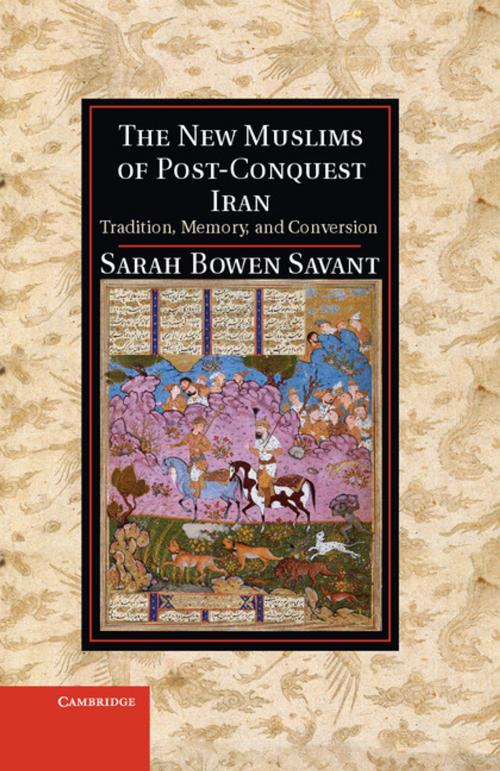The New Muslims of Post-Conquest Iran
Tradition, Memory, and Conversion
Nonfiction, History, Middle East, Religion & Spirituality| Author: | Dr Sarah Bowen Savant | ISBN: | 9781107289543 |
| Publisher: | Cambridge University Press | Publication: | September 30, 2013 |
| Imprint: | Cambridge University Press | Language: | English |
| Author: | Dr Sarah Bowen Savant |
| ISBN: | 9781107289543 |
| Publisher: | Cambridge University Press |
| Publication: | September 30, 2013 |
| Imprint: | Cambridge University Press |
| Language: | English |
How do converts to a religion come to feel an attachment to it? The New Muslims of Post-Conquest Iran answers this important question for Iran by focusing on the role of memory and its revision and erasure in the ninth to eleventh centuries. During this period, the descendants of the Persian imperial, religious and historiographical traditions not only wrote themselves into starkly different early Arabic and Islamic accounts of the past but also systematically suppressed much knowledge about pre-Islamic history. The result was both a new 'Persian' ethnic identity and the pairing of Islam with other loyalties and affiliations, including family, locale and sect. This pioneering study examines revisions to memory in a wide range of cases, from Iran's imperial and administrative heritage to the Prophet Muhammad's stalwart Persian companion, Salman al-Farisi, and to memory of Iranian scholars, soldiers and rulers in the mid-seventh century.
How do converts to a religion come to feel an attachment to it? The New Muslims of Post-Conquest Iran answers this important question for Iran by focusing on the role of memory and its revision and erasure in the ninth to eleventh centuries. During this period, the descendants of the Persian imperial, religious and historiographical traditions not only wrote themselves into starkly different early Arabic and Islamic accounts of the past but also systematically suppressed much knowledge about pre-Islamic history. The result was both a new 'Persian' ethnic identity and the pairing of Islam with other loyalties and affiliations, including family, locale and sect. This pioneering study examines revisions to memory in a wide range of cases, from Iran's imperial and administrative heritage to the Prophet Muhammad's stalwart Persian companion, Salman al-Farisi, and to memory of Iranian scholars, soldiers and rulers in the mid-seventh century.















